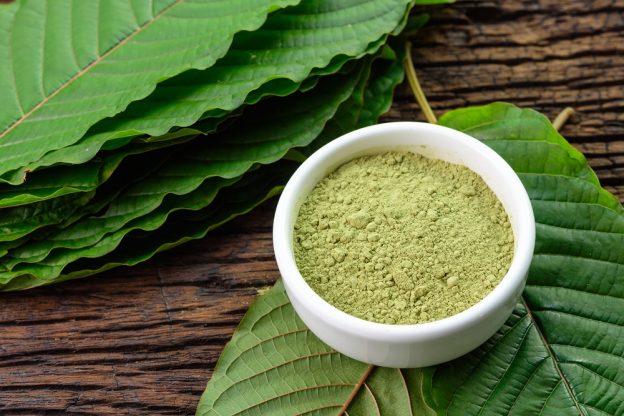Kratom tablets vs. Kratom capsules: which is right for you?
If you’re used to the Kratom world, then you must be aware of all the various ways you can consume your Mitragyna speciosa.
Firstly, if you don’t mind the unpleasant taste of the plant, you can chew on kratom leaves directly. This method of kratom consumption allows you to enjoy the instant effect of the plant.
Alternatively, you can use kratom by adding its powdered form directly to water, juice (particularly orange juice), tea, or coffee.
Finally, you can take your kratom in pill form – that is, as a tablet or a capsule.
Due to the unpleasant taste of kratom, many users frown at the first two methods described above. As such, they prefer to consume their kratom in pill form.
But even in this form, there’s a great confusion amongst kratom users as to whether there is any difference between the two forms.
So, we decided to create this post to help users understand the difference between kratom tablets and kratom capsules.

By Yanawut Suntornkij
Comparing the pros and cons of Kratom tablets vs. kratom capsules
Kratom Tablets
Pros
- Slightly faster initial onset of dose
Cons
- Longer time before full dose takes effect
- Binding agents result in less pure product
- Often unpleasant taste
Kratom Capsules
Pros
- Allows for a purer, more potent dose of kratom (no additives or fillers)
- Virtually flavorless
- Shorter “waiting period” before you experience your full dose
Cons
- Slightly slower initial onset (a result of the gel capsule, which can take a few minutes to dissolve in the stomach)
Important note: If you aren’t sure where to buy kratom, you can follow this link to buy from a reputable vendor.
The difference between kratom tablets and kratom capsules
Both kratom capsules and tablets are one and the same in terms of how they’re consumed – oral ingestion. But that’s where the similarities end.
In terms of how they’re produced (binding method), how they react with the body system, and the effects they produce, these two forms of kratom differ completely.
For example, while tablets are known for dissolving faster (dissolution starts from the mouth), capsules generally take longer to dissolve because of their gel capsules.
Furthermore, while tablets are known for offering users a purer, more potent dose of kratom, the binding agents in tablets alter the potency of its kratom content, making the plant less than effective.
How the production technique of kratom capsules and tablets influence their respective effectiveness
Kratom Tablet Binding Method:
Kratom tablets are generally produced by subjecting raw kratom powder and a binding agent to extremely high pressures.
On its own, kratom powder particles cannot stick together to form a tablet, even if subjected to the greatest of pressures. But with the addition of a binding agent, there’s an increased cohesion to press the powder together into a pill.
The most common binding agents in kratom tablets are:
- Gelatin
- Sucrose
- Polyvinylpyrrolidone
- Starch
- Microcrystalline cellulose
Note: Watch out for any online vendor who boasts in their kratom for sale ads that they offer “100% pure” kratom tablets with no binding agent of any kind. As we’ve already explained, there’s no way you can press kratom powder together without adding a binding agent.
Kratom Capsule Binding Method:
Kratom capsules, on the other hand, are made by housing kratom powder in a storage device known as “gelatin caps.”
Unlike what we had with the tablets, kratom capsules require no binding agent to hold its content together.
All it needs is a gel cap.
Because of this storage device, it is not necessary to alter the natural kratom powder in a kratom capsule in any way.
As a result, kratom capsules offer a purer and more potent dose of kratom as compared with their tablet counterparts.
By and large, if you’re looking for an all-natural, pure kratom experience (and you should be), kratom capsules are the clear choice. Kratom tablets rely on additional ingredients to maintain their cohesiveness. At worst, these can be synthetic and nasty-tasting additives that can have health implications of their own.
Taste
Kratom Tablet Taste:
In terms of how they both taste in the mouth, capsules win by a landslide.
One of the most common complaints amongst kratom users is that they dislike the unpleasant taste of the plant.
Unfortunately, kratom tablets do little to mask this unpleasantness. In fact, if anything, kratom tablets taste just like the raw powder itself.
Capsules, on the other hand, are more or less tasteless, as the unpleasant taste of the powder has been capped off in a gelatin shell.
The verdict
Based on the points we’ve discussed so far, it’s clear that kratom capsules are the best way to consume kratom powder.
Although you’ll have to make do with a shorter digestion and action time, the unaltered effectiveness, as well as close-to-pleasant taste of capsules make them a wonderful alternative to their tablet counterparts.
Author: Uday Tank














